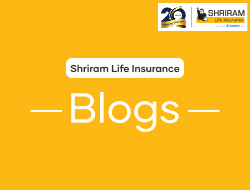Is PF Taxable in the New Tax Regime?
- Posted On: 13 Nov 2025
- Updated On: 13 Nov 2025
- 1801 Views
- 1 min read

Table of Contents
If you’re a salaried employee in India, you might be wondering, “Is my Provident Fund (PF) taxable under the new tax regime?” While the new regime offers lower tax rates, some deductions like Section 80C for employee PF contributions are no longer available. This guide explains what is taxable, what remains exempt, and how it affects your retirement savings.
What Is PF Taxation?
PF taxation refers to how contributions, interest, and withdrawals from your Employees’ Provident Fund (EPF) are taxed under Indian income tax laws. The new tax regime mainly affects deduction availability, while other PF rules such as withdrawal and employer contribution thresholds remain largely unchanged.
PF Taxation for Employee Contributions
- Who it applies to: All salaried individuals contributing to EPF.
- How it works: Under the new tax regime, employee PF contributions are not eligible for deduction under Section 80C, because most deductions are surrendered.
- Effect: Your contribution will not reduce taxable income under the new regime.
(Under the old regime, you could claim up to ₹1.5 lakh under 80C.)
PF Taxation for Employer Contributions
- Who it applies to: Employers and employees alike.
- Rules: Employer contributions to EPF (plus NPS and superannuation) are tax-free up to ₹7.5 lakh per year.
- Taxable excess: Any amount exceeding ₹7.5 lakh is taxable as a perquisite in the employee’s hands.
- Note: Voluntary employee contributions (VPF) do not count toward this limit.
Interest on PF
- Thresholds:
- Private sector employees: interest on employee contributions exceeding ₹2.5 lakh per year is taxable.
- Government employees: threshold is ₹5 lakh per year.
- Below threshold: Interest remains tax-free.
- Independence from tax regime: This rule applies regardless of whether you are in the old or new tax regime.
PF Withdrawal Rules
- After 5 years of continuous service: Withdrawals are generally tax-free.
- Before 5 years: Withdrawals may be partially taxable and subject to TDS.
- Note: Withdrawal rules remain the same under both old and new regimes.
Conclusion
Under the new tax regime, employee PF contributions no longer provide 80C deductions, while employer contributions are tax-free up to ₹7.5 lakh. Interest on contributions above ₹2.5 lakh (private) or ₹5 lakh (government) is taxable, but withdrawals after five years of service generally remain tax-free. Knowing these rules helps you plan your PF contributions and taxes effectively.
FAQs
Is PF fully taxable under the new regime?
No. Employee contributions lose deduction benefits, but most employer contributions and withdrawals remain tax-free within limits
How is PF interest taxed?
Interest on contributions exceeding ₹2.5 lakh (private sector) or ₹5 lakh (government) is taxable in the employee’s hands.
Are PF withdrawal rules affected by the new regime?
No. Withdrawals after 5 years of service remain generally tax-free, regardless of the tax regime.
OTP Verification
Please Enter OTP that has been sent to your registered
Mobile Number +91
You may be interested in
People also search for
Our Other Popular Plans




